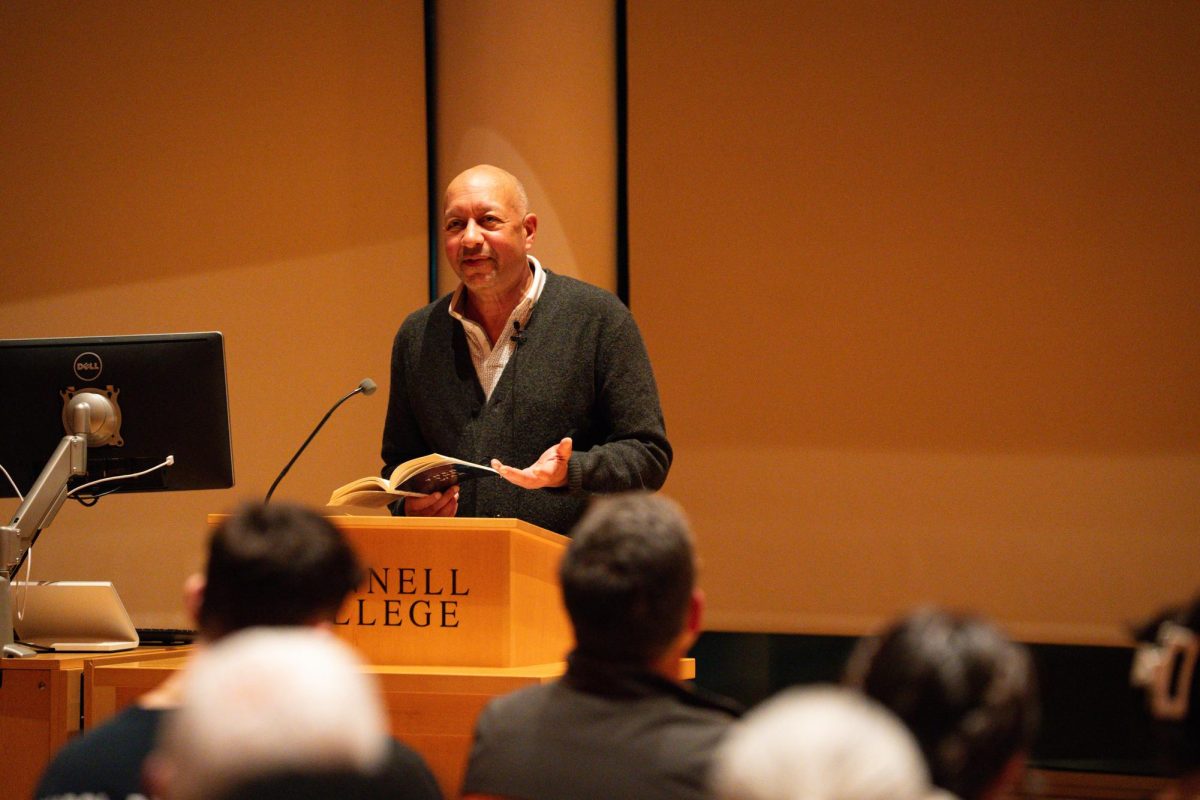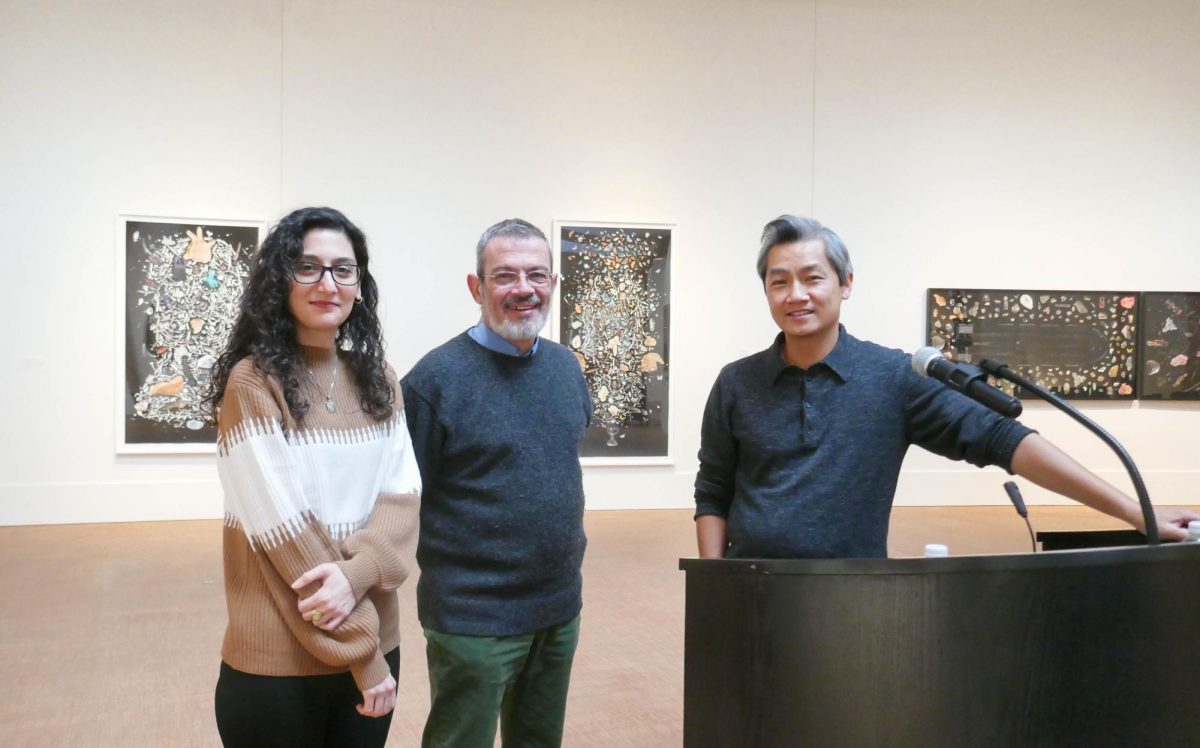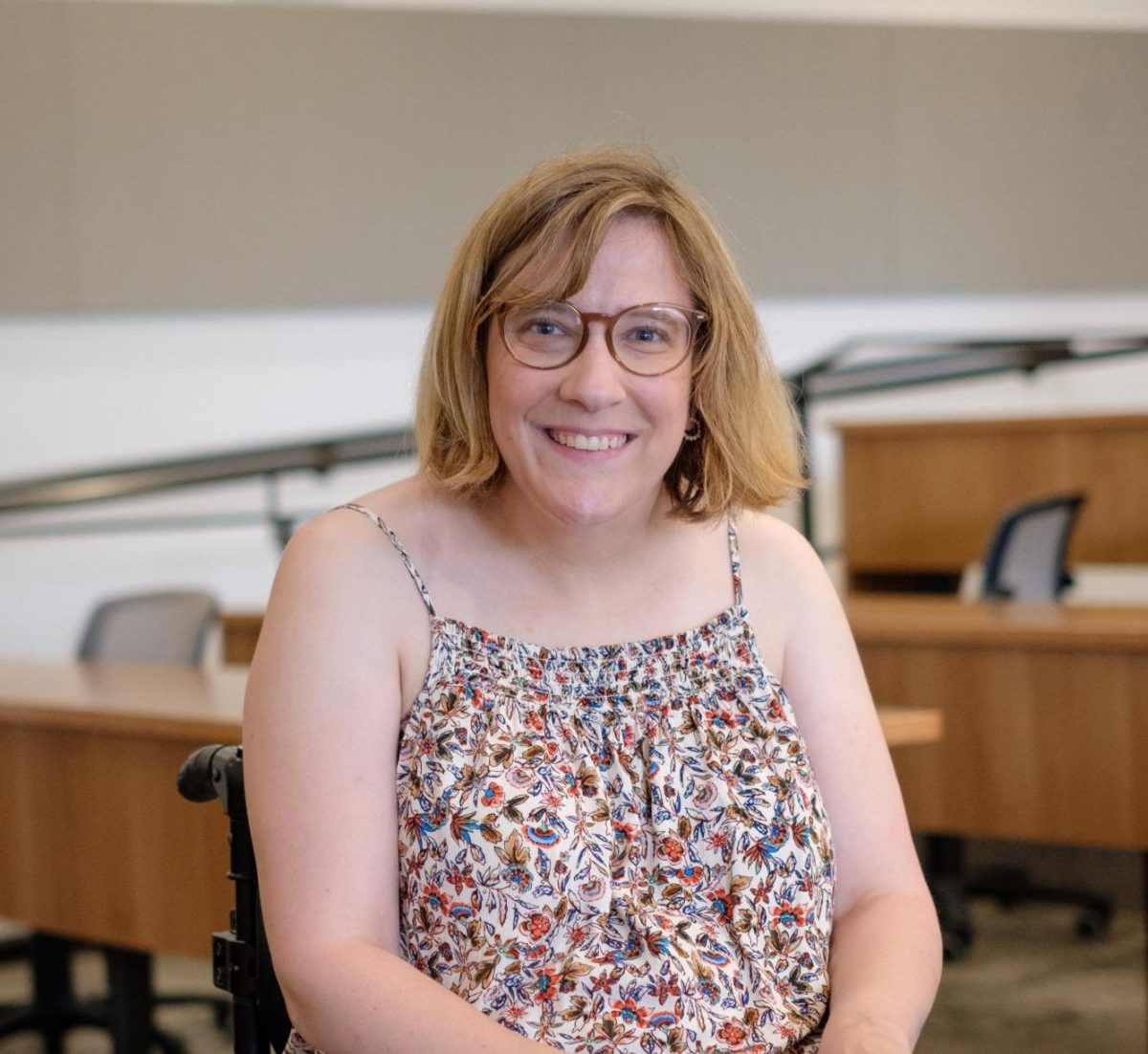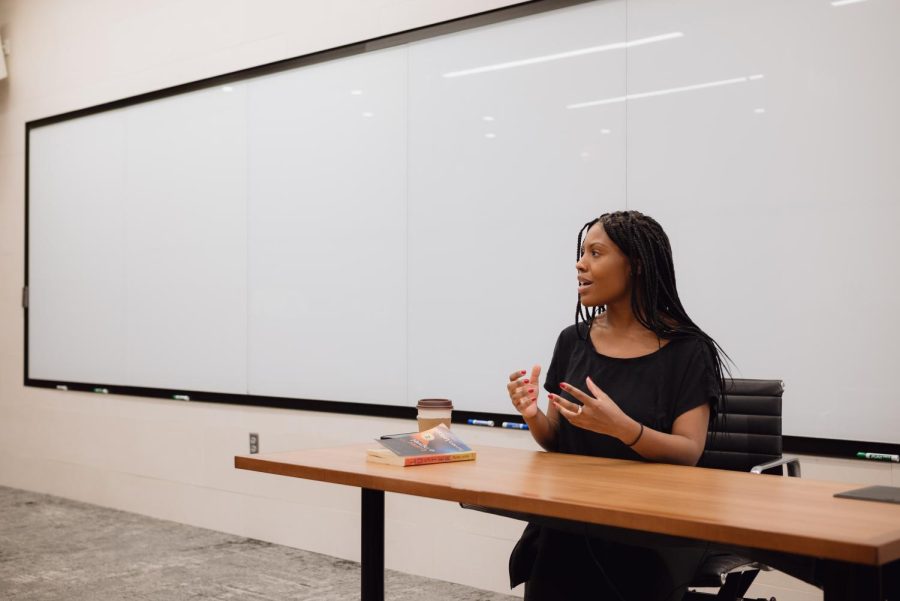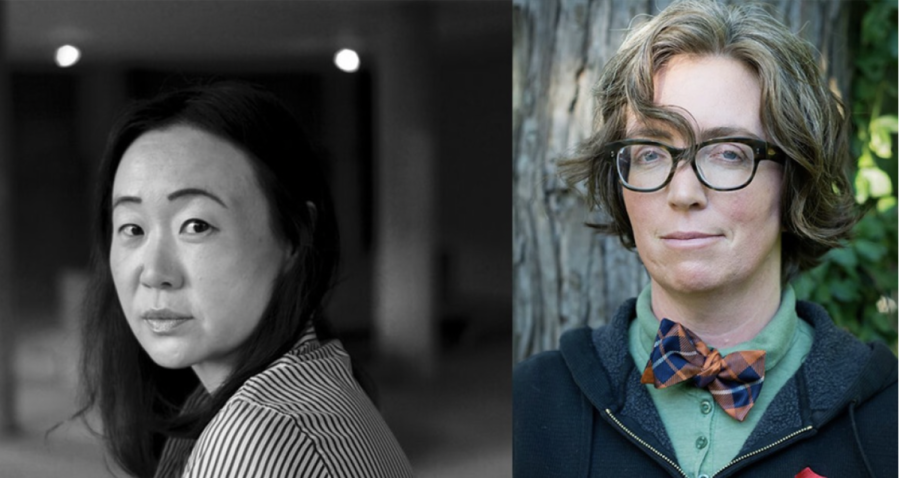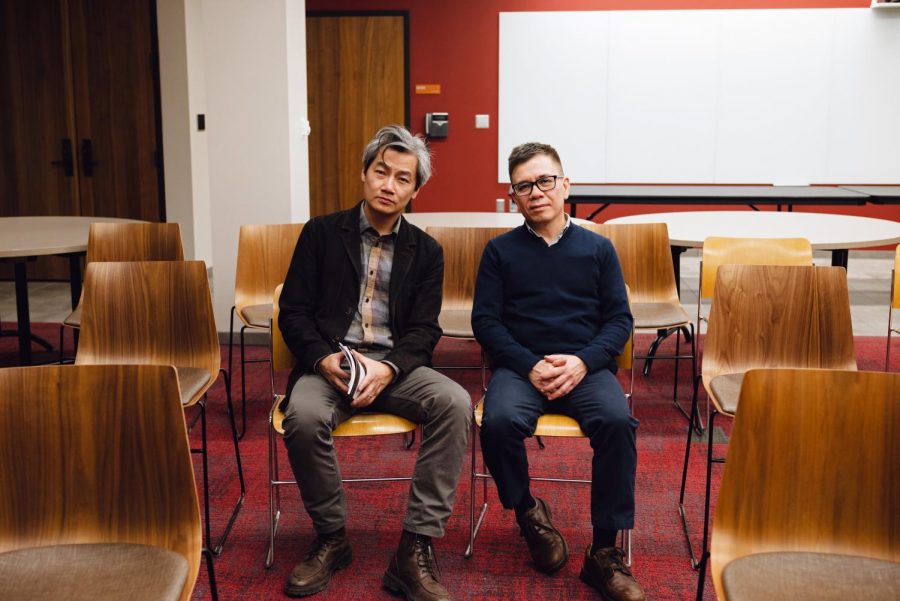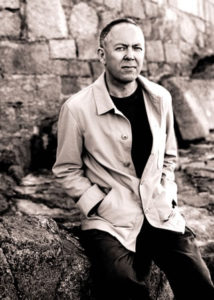
Hugo Hamilton is a best-selling and award-winning author and a visiting professor in English this semester. His memoir “The Speckled People” has been critically acclaimed around the world, as have his other works of fiction. The S&B’s Zane Silk sat down with Hamilton to discuss his work, his process and how living in Iowa has affected his writing.
The S&B: What are you teaching this semester?
Hugo Hamilton: I’m teaching a course on the contemporary art of writing and also a course on creative writing.
The S&B: What will you be reading from at your event tomorrow?
HH: I’ll be reading from various passages and introducing the audience to my best known work which is “The Speckled People.” I’ll be giving an outline on my strange German-Irish childhood.
The S&B: Tell me a little bit about that book.
HH: It’s about the kind of mixed family that I come from. My mother came from Germany to Ireland in the late 1940s after the Second World War and married an Irishman from West Cork who was an Irish speaker and a very serious nationalist, and he sort of outlawed the English language in the home. So we only spoke Irish and German inside the house and the English language outside on the street was like a foreign country to us. So that’s the kind of basis of the memoir that I wrote. It’s called “The Speckled People,” speckled meaning mixed. For Ireland in the 1950s when I grew up that was a very strange thing. Unlike America where you have speckled people everywhere, for Ireland it was quite an unusual thing in the 1950s and 60s. It was a difficult childhood in [those] terms, culturally difficult, [and] also the prohibition of the English language in the house [made it more] difficult.
The S&B: Why do you think that particular book became so well-known?
HH: I think its part of an interesting literary tradition of memoir writing. … Life stories are fascinating and I think that’s part of the success of my book. I think Ireland is changing very fast. In the past 20 years we’ve become a cosmopolitan society. Much like the other countries in Europe, in Dublin you will see people living in Dublin from all over the world now, and that’s kind of a huge change for Ireland. I think we’re now interested in all those stories of mixture and of people whose heritage is coming from somewhere else. [In] the old story of Ireland, immigration always had to do with going to America or going to Britain, now it’s a huge new story for people to be coming to Ireland.
The S&B: So “The Speckled People” was a way for people in Ireland to understand the changes in its society.
HH: Yes. I think the publication coincided with a new awareness in Ireland, of this kind of multi-culture or this cosmopolitan culture in Ireland in 2003.
The S&B: Your most recent book “Every Single Minute” is also about a specific time in your life, a trip with another writer, but you chose to market it as a novel and not a memoir. Why is that the case?
HH: The book is based on a real event. I brought a writer by the name of Nuala Faolain to Berlin when she was dying of cancer. We were both memoirists, both novelists, of course it would have been possible to write it as a memoir, as a factual account. But I think it offered much more scope to make this into a novel. Firstly because there were a group of people with her at that time, and I thought it was much more interesting to have it as a … dialogue between two people, recovering memory and disputing the nature of truth and memory.
The S&B: So the question of memoir or novel has a lot to do with how you want to frame the given story.
HH: Yes, and that’s what I find fascinating about all literature and I don’t draw an absolute distinction between memoir and fiction. I think there’s a great cross over between them. For instance, James Joyce’s “The Portrait of the Artist as a Young Man” is always regarded as a piece of fiction, but it has a very strong memoir element. The way I see it is that all writing is an act of ventriloquism. You enter into the voice of a character, whether that is a factual voice or is partly made up, there is always a truth behind it. So, me writing about myself as a child is just as much a piece of ventriloquism as me writing about a … fictional character.
The S&B: Can you tell me a little bit about your writing process?
HH: The writing process. That is the question that Jonathan Franzen hates most. I’ll try and answer it. At this stage in my life, I’ve been a writer for so many years; my desk is the safest place in the world. It’s the place where I can invent. It’s the place … to hide. It’s a place to feel complete as a person. It’s the only place … to go for me.
The S&B: Does being in a different place, such as Grinnell, effect your work or your writing process?
HH: That’s something I can answer. Coming to Grinnell is a huge boost to my writing. In general, coming to the USA is a break of freedom for me as a person. I think I should have come to the USA when I was 20. I wouldn’t have had to go through the turmoil of self-assessing my life so much. I think the American culture gives me, and a lot of Irish people, a lot of people in Europe, a great freedom, and I feel that entering into my writing as I come here. I think there is kind of an adventurous spirit. I don’t know what it is. There is a kind of width in the roads that go into infinity. You travel in Ireland and everything goes around curves and bends. Everything comes to a slow stop. You are entering into stories you have heard before. There is a sort of feeling, for me, and I think that goes for a lot of people that [this is] a great adventure. Iowa has been particularly of great interest, and Grinnell is a great college. It’s a very inspiring place to be.
The S&B: How so?
HH: It’s wonderful to be working with such gifted students. It’s fantastic to hear the train going through campus. I just want to jump on it. I have this feeling that I can go anywhere in the world. For a writer, I think it’s a wonderful place to come. It’s a really inspiring journey for me. For me, coming to Iowa, it’s almost like going to the West of Ireland. I can feel how remote it is and I like that. Its like being in in Cloghane in County Kerry. Everyone smiles at me and says hello. I like that kind of remoteness. It’s good for me.
Hamilton will be giving a reading of his work on Thursday, Nov. 3, at 7:30 p.m. in Faulconer Gallery.




















































